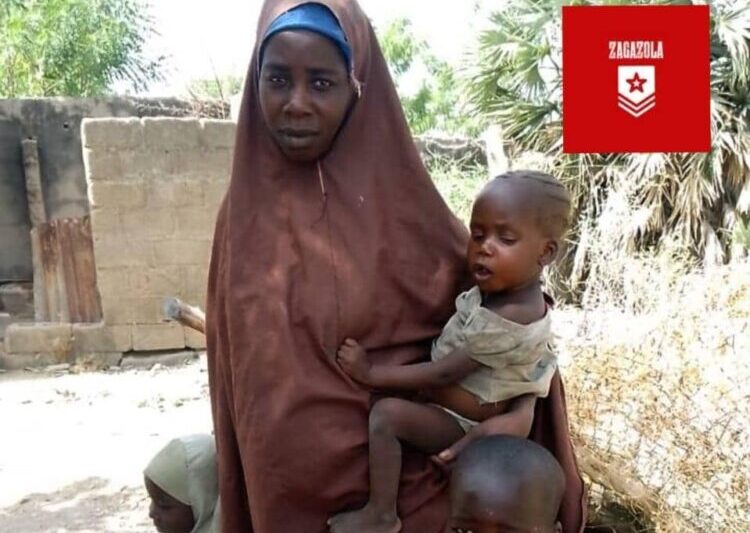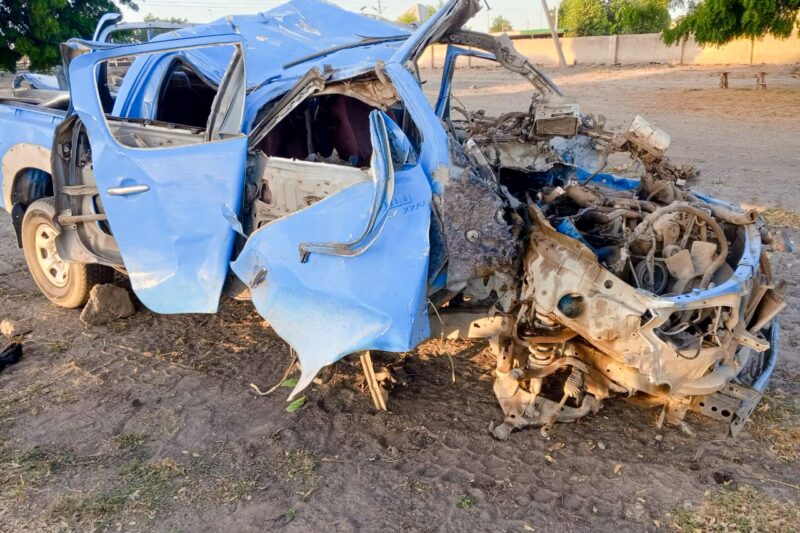The food insecurity situation in conflict zones in Nigeria is likely to worsen, affecting thousands of the most vulnerable communities and leading to an inevitable food crisis that will be hard to stem.
According to Federal State of Nigeria’s biannual Harmonize Framework report, led by the country’s ministry of agriculture, food insecurity will put nearly 17 million people in food insecurity crisis or emergency in 2022.
At least 2.6 million people have been displaced in the 12 years of insurgency in the northeast and the Lake Chad Basin, making them even more vulnerable to a food insecure crisis.
But the report says insecurity in the northwest, has resulted in at least 160,000 people being displaced in the states of Sokoto, Kaduna, Kebbi, Niger, Zamfara and Katsina.
Nearly 41,000 people fled the area to the Republic of Niger for safety.
The violence between farmers and herders that has lasted for years also displaced an estimated 300,000 people across the country.
This situation, the report says, has turned the food crisis into a daily war for Nigerians who face serious humanitarian challenges.
As a result, about 8.7 million Nigerians are in urgent need of humanitarian assistance.
Thousands of people in internally displaced persons’ camps every day face challenges, such as inadequate meals, malnutrition, poor hygiene and sexual abuse.
The report says it is a very difficult situation that requires great effort.
The figures contained in the report clearly show the gravity of the situation to come.
The Harmonize Framework states that: “Ending food insecurity is a long and hesitant journey.”
The organisation asserts that food insecurity will continue if human insecurity is not reduced.
The insecurity in these conflict regions has a major effect on the rural populations, which account for 90% of Nigeria’s agricultural production.
The conflict crisis limits access to agricultural land and markets and this will continue to affect food production and increase the price of food products, which has already skyrocketed, leaving many in the communities in northeast Nigeria unable to put food on the table.
The Harmonize Framework believes that the first response to solving Nigeria’s food insecurity is to increase agricultural production.
The organisation concedes that it will not be easy, especially because of the rise in violence and unmanaged climate action.
“For these reasons, efforts must be directed towards countering the proliferation of non-state armed groups that pose serious threats to farming communities and livelihoods. Other measures include real conversations to resolve the conflict between farmers and herders in Nigeria and personalised efforts to manage the drivers of migration in the Lake Chad Basin.
“Conflict issues in Nigeria and the Lake Chad Basin contribute 54% of the food crisis in Africa, according to the World Food Programme (WFP). Managing the escalation of violent conflict will help maintain unhindered access to farmland and mitigate disruption to farming activities,” the report says.
The report also proposes improving livelihood support in conflict zones to mitigate the effect of violence and food insecurity.








